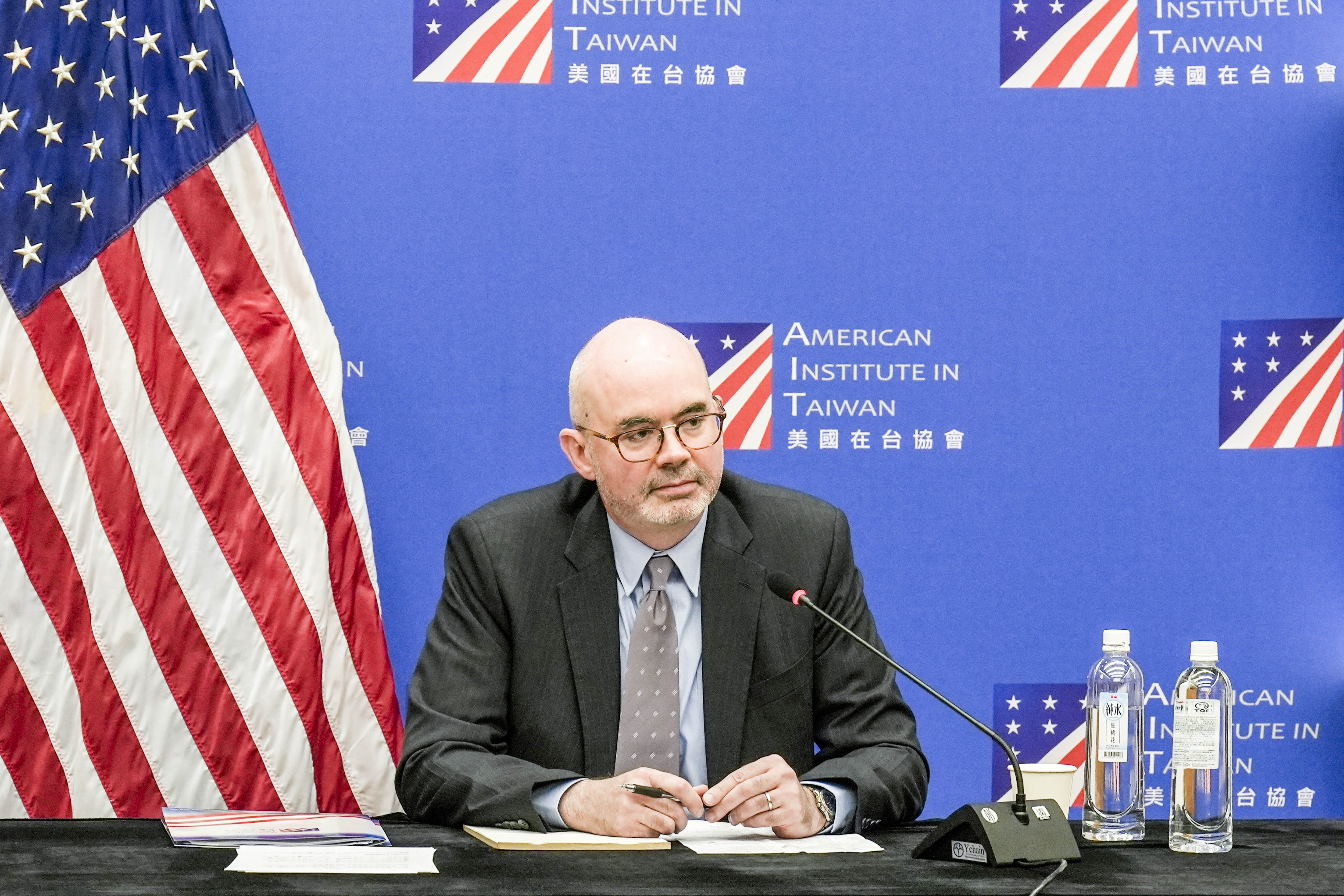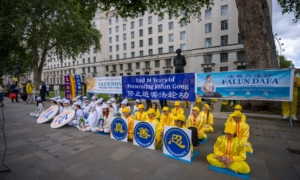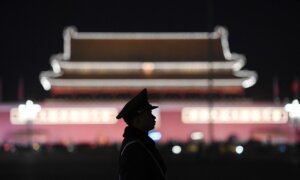TAIPEI, Taiwan—The top American diplomat in Taiwan said the next U.S. administration will likely maintain the current policy toward the island nation, ensuring stability and continuity in U.S.–Taiwan relations.
Raymond Greene, director of the American Institute in Taiwan (AIT), which functions as the U.S. Embassy in the absence of formal diplomatic ties between Washington and Taipei, gave a wide-ranging interview in Mandarin to local YouTube program “Mindi World News” aired on Oct. 27.
“I’m actually not so worried about whether the new president—whether that be Vice President [Kamala] Harris or former President [Donald] Trump—will change course,” he said, responding to a question about whether he believed a new U.S. administration would change the AIT’s works.
Greene said the U.S.–Taiwan relationship has received bipartisan support since the signing of the Taiwan Relations Act in 1979, noting that in Congress, every time there was a bill related to Taiwan, it was passed by an overwhelming majority.
“So nobody in Congress or our political circle is opposing the relationship between the United States and Taiwan,” he said.
In other words, U.S. military support for Taiwan and the economic ties between the two sides will continue, Greene said.
Washington severed diplomatic ties with Taipei in favor of Beijing in 1979. However, the two sides have enjoyed a robust relationship based on the Taiwan Relations Act—a law that authorizes the United States to provide the island with military equipment for self-defense.
On Oct. 25, the United States approved another arms sale to Taiwan. The new package, worth nearly $2 billion, consisted of two radar systems and the first-time delivery of an advanced surface-to-air missile system.
Taiwan’s foreign ministry issued a statement thanking Washington for continuing to provide the island with defensive weaponry. It noted that the latest arms sale marks the 17th military deal the Biden administration authorized.
China’s foreign ministry hit back in a statement on Oct. 26, saying that the latest arms sale undermines “China’s sovereignty and security interests.”
The Chinese Communist Party (CCP) claims Taiwan as its territory and has not renounced the use of military force to seize the self-ruled island.
All-Out War Unlikely
Greene dismissed the likelihood of a full-fledged war across the Taiwan Strait.“Certainly, we should avoid an all-out war, but I think the possibility of that happening is quite low,” he said, adding that Taiwan’s military reforms and U.S. deployments in the Pacific have all posed a deterrence against a potential Chinese invasion.
“Most countries do not want to see any problems across the Taiwan Strait. And they also don’t want to see any changes to the cross-strait status quo,” he said.
Earlier this month, China launched a large-scale, one-day military exercise around the island, deploying its Navy, Air Force, Rocket Force, and Coast Guard. The exercise drew international condemnation, with the Pentagon calling it “irresponsible, disproportionate, and destabilizing.”
Taiwanese Defense Minister Wellington Koo warned last week that aside from an invasion, the Chinese regime could impose a blockade to try to compel Taiwan to surrender. However, such an action would be considered an act of war.
In response to Woo’s comment, Rep. Mark Green (R-Tenn.), chairman of the House Homeland Security Committee, wrote on X, “We must treat Communist China’s aggression against Taiwan seriously. A strong American military is the best deterrent to escalation.”
The Chinese regime has also been engaging in “gray zone” operations against Taiwan. On Oct. 29, four China Coast Guard vessels intruded into “restricted waters” near Taiwan’s offshore island of Kinmen, Taiwan’s Coast Guard Administration (CGA) said in a statement, adding that the last incident marks the 48th intrusion in waters off Kinmen and another offshore island of Matsu this year.
The CGA said China’s latest move “has exacerbated cross-strait estrangement” and called on Beijing to “stop similar intrusive measures that undermine cross-strait peace.”
Also, on Oct. 29, the AIT announced that its Washington Office Managing Director Ingrid Larson was visiting Taiwan for meetings from Oct. 28 to Nov. 1.
Larson’s trip is “as part of the United States’ strong commitment to Taiwan and to advance growing U.S.–Taiwan partnership,” the AIT said.
“While in Taiwan, she will discuss continued U.S.–Taiwan collaboration on issues of mutual interest such as regional security, mutually beneficial trade and investment, and people-to-people, educational, and cultural ties.”













